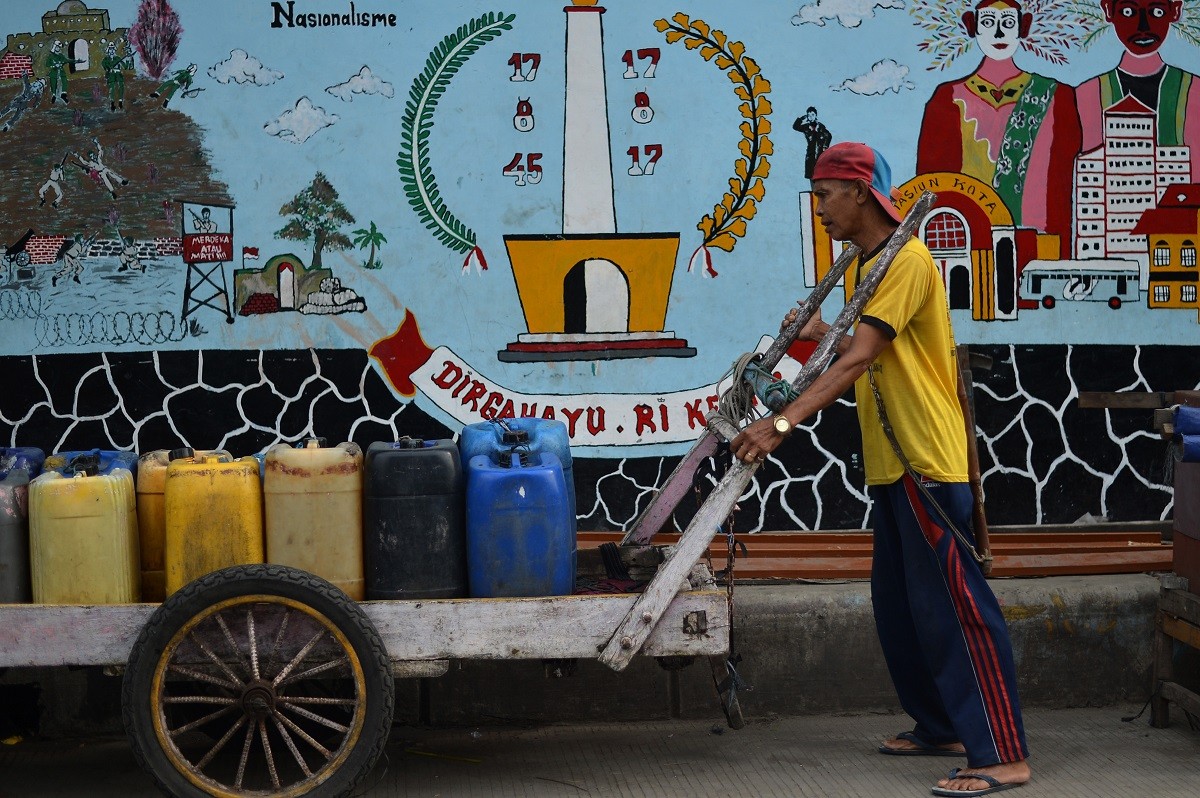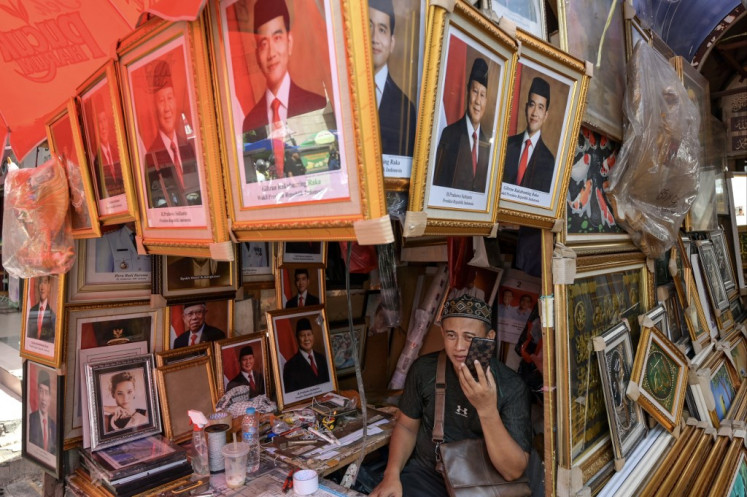Resurrecting a white elephant
As the Feb. 10 deadline for the Water Governance Evaluation Team to submit its assessment approaches, all eyes are on Jakarta Governor Anies Baswedan, who will have to turn around the money-losing city-owned water enterprise PT PAM Jaya.
Change Size
 At Rp 7,800 per cubic meter, water prices in Jakarta are the highest in the country. (Antara/Wahyu Putro A.)
At Rp 7,800 per cubic meter, water prices in Jakarta are the highest in the country. (Antara/Wahyu Putro A.)
A
s the Feb. 10 deadline for the Water Governance Evaluation Team to submit its assessment approaches, all eyes are on Jakarta Governor Anies Baswedan, who will have to turn around the money-losing city-owned water enterprise PT PAM Jaya.
Anies has come under intense pressure to implement a 2017 Supreme Court ruling that requires PAM Jaya to terminate its partnerships with privately owned PT Lyonnaise Jaya (Palyja) and PT Aetra Air Jakarta as the business deals are deemed unconstitutional.
Instead of severing cooperation, PAM Jaya and its private partners “restructured” their contract on the pretext that they had signed the documents before the ruling was issued. PAM Jaya did so out of fear that it would have to pay the companies Rp 6.7 trillion (US$476 million) in compensation.
The Supreme Court agreed with the petitioner, the Coalition of Jakarta Residents Opposing Water Privatization, that the privatization of water management ran contrary to the Constitution. The ruling is in line with a 2015 Constitutional Court decision that annulled the Water Resources Law — which justifies water privatization — on similar grounds.
Sealed in 1997, the partnership agreements entrust the private firms the city’s water management until 2023, for the reason that PT PAM Jaya had neither adequate technical competence nor financial resources to develop the business. Palyja is operating in the western part of the city and Thames Pam Jaya (TPJ) in the eastern part. TPJ later became Aetra. The team’s work has been shrouded with secrecy. A key recommendation leaked to the media was one requesting that the administration acquire the two private companies’ shares to avoid legal complications that could result from implementing the court ruling.
Not as sweet as it may sound, the ruling poses a mammoth challenge for City Hall. PAM Jaya’s cooperation with the private firms resulted in accumulated losses of Rp 1.4 trillion between 1998 and 2015, according to the Development Finance Comptroller (BPKP). The losses occurred because PAM Jaya had to cover the Rp 2,000 per cubic meter shortfall between the production costs of Aetra and Palyja and revenue.
When, or if, PAM Jaya eventually regains full control of water management, it would inherit a dilapidated system and need to install expensive new pipelines and go the extra mile for targeted coverage. In 1997, the city aimed to achieve 98 percent coverage by the end of 2023, but in 2017 PAM Jaya reported that only 60 percent of Jakarta households had access to tap water. The remaining 40 percent possibly rely on groundwater and this explains why Jakarta is one of the world’s fastest sinking cities.
At Rp 7,800 per cubic meter, water prices in Jakarta are the highest in the country. In contrast, Surabaya PAM covers 87 percent of the city’s households, which pay Rp 2,800 per cubic meter.
Other cities show that public water enterprises can perform well. For a metropolis like Jakarta granting water management to PAM Jaya would be like resurrecting a white elephant, unless the administration has a workable plan.









